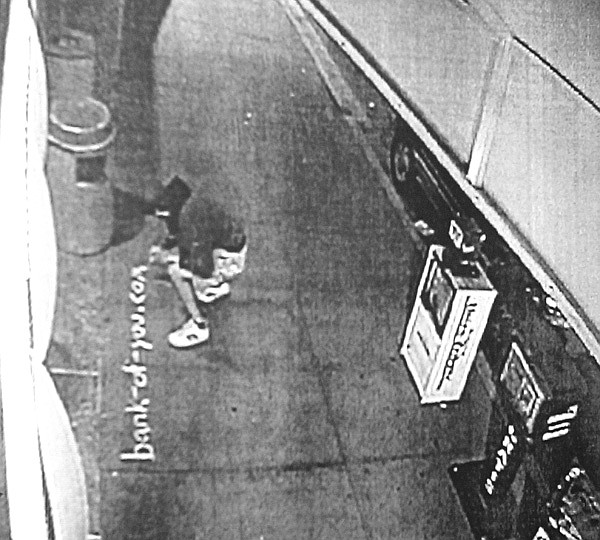Chalk art outside of City Hall in Los Angeles. (Robyn Beck/AFP via Getty Images)
Jeff Olson, the San Diego activist who faced 13 years in prison for graffiti
In the small town of Selah, Wash., a scuffle over the street chalk art of Black Lives Matter protesters drew national attention in 2020. Local authorities said chalk is graffiti, no matter how ephemeral. But protesters called it protected free speech.
The clash was a familiar one, surfacing from time to time in cities across the country, but perhaps never more bizarrely than in San Diego back in 2013. After the 2008 Wall Street bailout, a 40-year-old activist named Jeff Olson was fed up, as he put it, with big banks taking advantage of the little guy.
As he strolled through a CVS one day, his eyes fell on a carton of children’s street chalk and he had an idea. Chalk in hand, Olson kneeled on the sidewalks in front of three Bank of America branches around San Diego. “No thanks, big banks,” he wrote. Also: “Shame on BofA”; a drawing of tentacles stretching from the bank walls and clutching dollar bills; and “Matthew 21:12,” a verse that describes Jesus tossing bankers from the temple.
Alerted by the bank, city prosecutors decided to slap Olson with 13 counts of misdemeanor vandalism. At first, he was convinced someone was pranking him, Olson told the Sun. “Then it got pretty real.”

Prosecutors offered a deal. They would drop the charges in exchange for a $6,300 fine, 32 hours of community service, and the surrender of Olson’s driver’s license for three years. He refused. When the alternative weekly San Diego Reader got wind of the trial, it highlighted the eye-popping stakes. Olson faced a maximum penalty of 13 years in prison.
Though exceedingly unlikely, the potential punishment set off a storm of news coverage that became so intense the judge barred Olson from talking to reporters. In the court of public opinion, however, the verdict was settled. Nearly 35,000 people signed a petition demanding Olson be left alone. Even San Diego’s mayor called the case “stupid.”
But prosecutors stood firm, arguing that the bank suffered monetary damages and that chalk is “still graffiti even if the material can be removed with water.” For Olson, the case took a worrying turn when the judge prohibited any courtroom talk of free speech, a major plank of the defense. The case, the judge explained, was about vandalism.
Even so, the jury took Olson’s side, acquitting him on all charges. He credited his lawyer’s skill. But in retrospect, he said, it’s hard to imagine the outcome having gone another way: If the challenge to free expression didn’t offend jurors, the waste of taxpayer funds would have. “It was funny,” Olson said. “There was something for everyone to hate about my case.”
This article is from the California Sun, a newsletter that delivers must-read stories to your inbox each morning . Sign up here.
Get your daily dose of the Golden State.